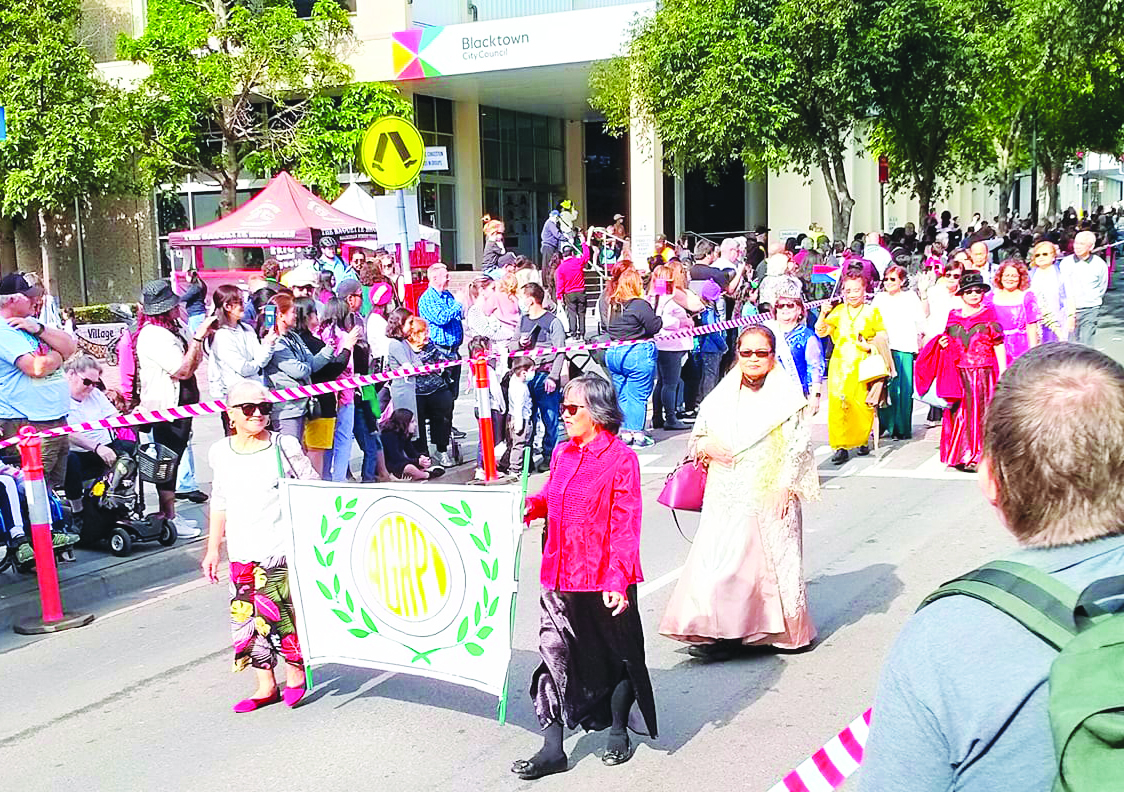Australia prides itself on the many faces who contribute to its diverse and colourful culture. The many faces of Australia have skin colours as contrasting as black and white, with a variety of colours in between like brown, dark brown and yellow and pale yellow. Here we look at one particular face – the Filipinos. They whose happy faces and brown skin contribute to this interesting mix of culture.
Walk leisurely in the city and, chances are, you’ll bump into someone whose skin colour and shy smile can only be mistaken to be that of a Filipino. Filipinos seem to be scattered everywhere in Australia. Where I live, I come across Filipinos at grocery check-outs, in hospitals, in banks, in fast food restaurants and practically any place where work is available. Filipinos are leading such an active and work-filled life in this country. As a matter of fact, the current profile of Filipinos in Australia is that of financially in-dependent and gainfully employed individuals. How-ever there are still a number of Filipino migrants who cannot be included in this category. These are Filipinos who are unable to find work for some reason. We often don’t see them because they shy away from the Filipino social scene. They stay at home most of the time. They are almost invisible to other Filipinos.
Meet Mila (not her real name). Mila migrated to Australia more than 25 years ago. For the past several years Mila has scarcely been out of her home. This is due to the onset of senility three years ago which has now progressed to full-bown Alzheimer’s disease. Mila’s husband Tony, an Italian migrant who is 10 years younger than Mila, looks after her full-time.
When I met Mila and Tony in unusual circumstance, Mila was reeking faintly of urine. She was also dressed in red skirt 3 inches above the knee and was wearing high-heeled sandals. Without seeing her face, one might have taken her for a woman still in her twenties. She was definitely wearing a young woman’s get-up.
From our conversation, it appeared that it was actually her husband who dressed Mila like that. In fact, her husband does everything for Mila these days. According to Tony, Mila cannot be trusted to do things for herself anymore. She easily forgets things and sometimes just stops and stares into space. Once he came home and found her in the shower at a loss as to what she should be doing there.
Tony can recite the ways Mila depends on him like a litany. He cooks for her, showers her and even cleans her up. Mila has already forgotten that there is a reason why homes have toilets so twice she soiled their bed. Tony had to discard their bed and buy a new one because of this. But this is not as terrible, he says, as her forgetting about the dangers posed by misusing electrical appliances at home. More than once she has left a pot of stew boiling for hours. It was almost burnt when he came home. Because of this episode, Tony has become wary of leaving Mila by herself. Nowadays he takes Mila with him wherever he goes.
The gravity of Tony’s responsibility cannot be over-emphasised, but what I was also curious to know was how things were before Mila’s illness. From my conversation with Tony, I got a glimpse of Mila before she was debilitated with Alzheimer’s.
25 years ago, Mila arrived in Melbourne on a fiancée visa at the age of fifty. She must have married for love, because what ensued after she settled in Australia was 25 years of slaving as a worker. She began cleaning buildings and factories so she and her husband could pay off their home mortgage. It is easy for me to guess that Mila had a hard turn in life. Her calloused hands and bad teeth are silent testimonies of the life she once led. As for her married life, I cannot tell for sure if she had endured some hardships in that department as well. What is plain to see is that Mila submits to everything that is asked of her. A quiet and timid woman with anxious eyes and frail body covered in a tight skirt, Mila just coyly smiles every time a question is asked of her. Her response to everything is either ‘yes’ or the somewhat apologetic, ‘I’m sorry.’ Could this display of servility be a direct result of a life spent taking orders from those around her, even from the man who now looks after her welfare?
I don’t want to make light of Tony’s difficulties as his wife’s carer. A carer too has a lot to endure. However, by his own admission and choice, he does not act according to the repeated suggestions from the welfare service, that Mila be brought to a home where she could be cared for properly. Tony vehemently insists on remaining Mila’s carer. He says that he can still manage looking after Mila but he whinges about the insufficient monetary allowance given to them by the government.
After our conversation, Tony sought me out privately and asked me to talk to his wife in Filipino. With an expression of a strange flavour on his face, he asked me if I could I at least convince Mila not to work herself up into a panic at the mere hint of sexual intimacy. ‘I also need sex, you know.’ Making it seem like this odd request was entirely justified.









Leave a Reply